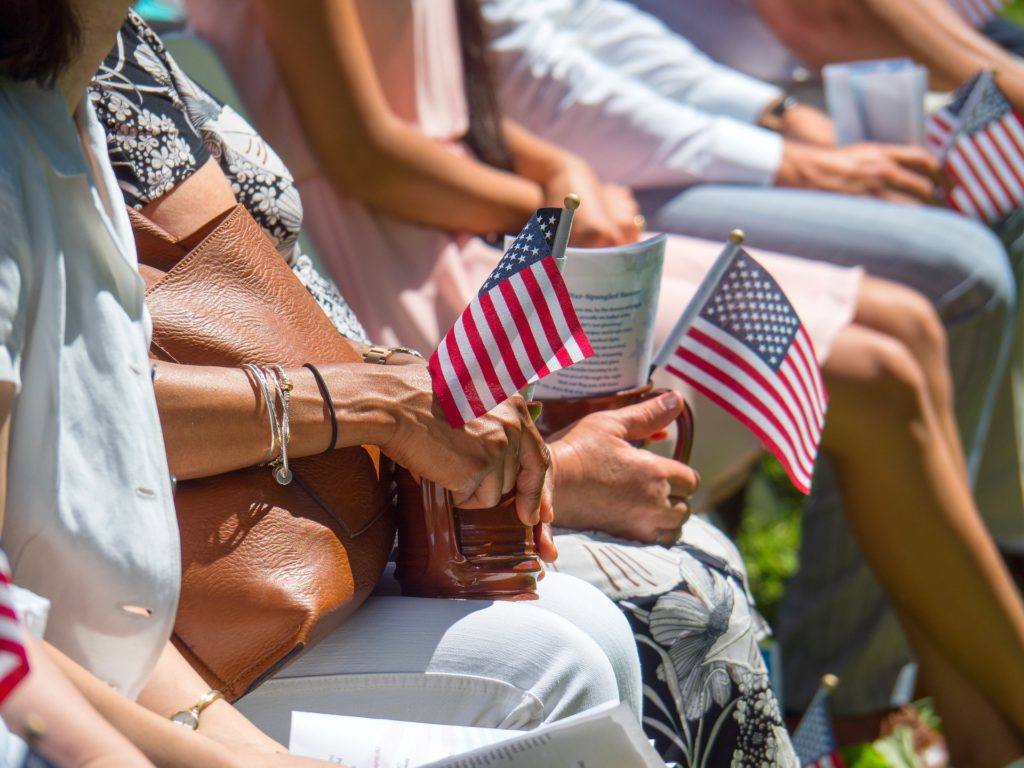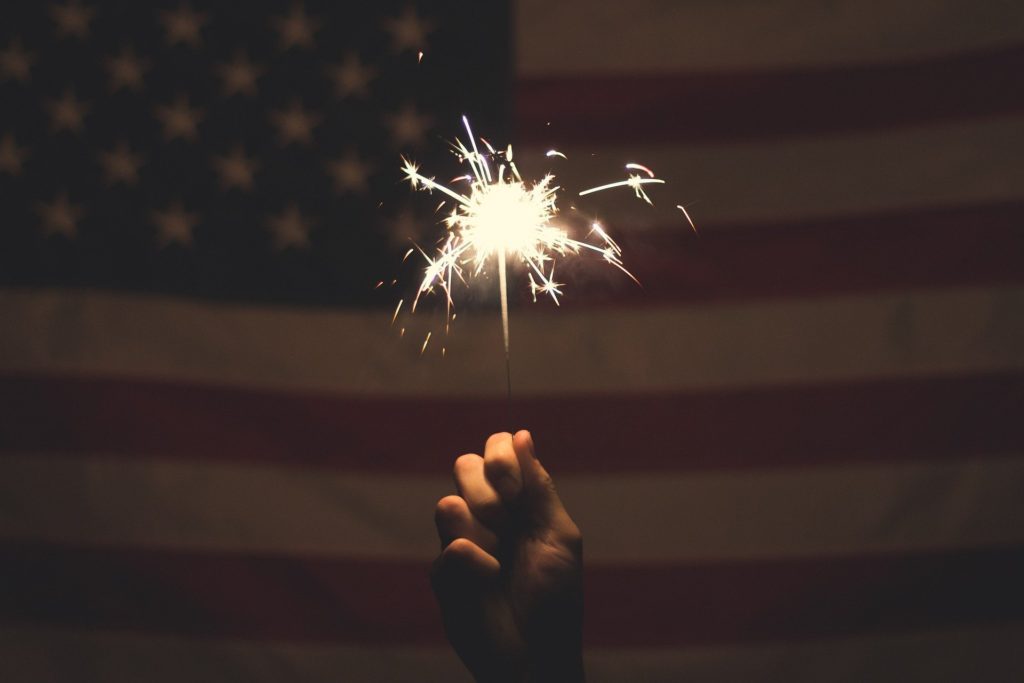
The July 4 holiday has long been a tradition of people gathering together for daytime barbecues, summer fun and evening fireworks. It is a time of laughter and carefree indulgence, a celebration of independence from British rule, as well as the freedom that is a cornerstone of life in the United States.
The Independence Day holiday this year was a different experience for many, hampered by masks, social distancing, and legitimate fear related to the COVID-19 pandemic. Fireworks displays were canceled in California, Texas, Utah, and New York among other states. Yet for other Americans, this July 4 holiday was not too different from other years — masks were put aside and freedom was enjoyed, fireworks and all.
The deeply embedded ethos of freedom in the United States can be traced back to the escape from oppressive British sovereignty prior to independence on July 4, 1776. Freedom has been heralded as an essential tenet of U.S. culture and used to justify participation in many battles since. It was freedom of speech, religion, fear, and want that banded the Allies together in World War II to defeat Nazi Germany. That war also birthed “the division of the planet into a ‘free world’ and an unfree world, which would long outlive the defeat of Hitler,” notes Dr. Eric Foner, a Professor of History at Columbia University.
Not long after the conclusion of World War II, Freedom was again reiterated as a central theme in American culture. 1947 saw the ‘Freedom Train’ travel across the country, showcasing historical artifacts of American democracy. Viewed by more than 3.5 million people, the purpose of the train was to “reawaken in the American people, the loyalty it is known they have for the American way of life.”
Dr. Foner states that “no idea is more fundamental to Americans’ sense of themselves as individuals and as a nation than freedom. The central term in our political vocabulary, freedom — or liberty, with which it is almost always used interchangeably — is deeply embedded in the documentary record of our history and the language of everyday life. The Declaration of Independence lists liberty among mankind’s inalienable rights; the Constitution announces as its purpose to secure liberty’s blessings.”
Freedom was also a differentiator in the Cold War. “The collapse of communism as an ideology — and of the Soviet Union as a world power — made possible an unprecedented internationalization of current American concepts of freedom,” says Dr. Foner. “The ‘free world’ triumphed over its totalitarian adversary, the ‘free market’ over the idea of a planned or regulated economy, and the ‘free individual’ over the ethic of social citizenship.”
There is undoubtedly great value in freedom. But as we now find ourselves in a pandemic it is worthwhile questioning ourselves on the balance we need to strike between freedom and the preservation of our health. Does the instinct to fight for freedom inhibit our ability to effectively fight COVID-19? Is our fierce individualism at odds with the steps necessary to save multiple lives? What price do we put on the life of a countryman, and is that too great a cost to pay for the loss of day to day liberties?
Having been asked to isolate from our friends, family and normal existence since March in California, it is understandable that by late May — the unofficial start to summer — air needed to be let out of the highly-pressurized self-isolation balloon. Restaurant patios were opened and citizens were free to socially distance while wearing masks in indoor and outdoor settings and following local rules. Though California had some of the strongest restrictions after lifting stay at home orders, the severe spikes in coronavirus case numbers over the last 6-weeks tell us those rules weren’t strict enough.
Given the freedom to do the right thing – continue to isolate, keep distance from others, and wear a mask to protect the community from further transmission – it seems that many chose the easier path. That is the path of independence from following rules and guidelines, and from putting the communities needs above one’s own liberties. The path of instant gratification and self-interest, rather than that of collective wellbeing.
A well-used resource for understanding the structure and norms of national cultures is Hofstede’s Dimensions, created by social psychologist Geert Hofstede. Hofstede assigns a rating to 6 dimensions of national culture and helps to explain and contrast the differences between societies as a tool to assist in cross-cultural exchange and a globalized workforce. The United States rates exceptionally high on two of these dimensions.
The first is the Individualist/Collectivist dimension. Hofstede explains that the U.S. has one of the highest individualist ratings in the world, noting that one of the differentiating factors is “whether people’s self-image is defined in terms of ‘I’ or ‘We’.” Hofstede continues that “in individualist societies, people are only supposed to look after themselves and their direct family.”
The other dimension in which the U.S. rates higher than many other countries, is that of Indulgence/Restraint. The Hofstede Insights website states that “this dimension is defined as the extent to which people try to control their desires and impulses, based on the way they were raised. A tendency toward a relatively weak control over their impulses is called “Indulgence”, whereas a relatively strong control over their urges is called “Restraint”.” It further notes that with a score of 68 on the Indulgent/Restraint dimension, the U.S. scores as Indulgent.
Extrapolating this information and applying it to the pandemic we find ourselves in now, we must ask ourselves if these circumstances warrant a shift toward a more Collectivist and Restraint oriented mindset – even temporarily — to protect the health of our communities and ultimately our nation.
There are those that believe that the culture of the United States is so closely intertwined with the idea of Freedom that it is and should remain paramount, and we should accept the consequences of COVID-19 accordingly. Columbia History Professor Foner explains that a response of this kind is habitual. “Americans instinctively turn to the privileges enumerated in the Bill of Rights – freedom of speech, the press, and religion.”
Whether citizens can lean away from this fundamental identity so deeply embedded in our psyche during this global emergency for the purpose of overcoming it, remains to be seen. Can this great nation balance the collective good with individual rights, and use restraint rather than indulgence to save the lives and health of their countrymen? If the answer to those questions is no, we must ask ourselves at what cost the dogmatic, interminable fight for absolute freedom comes at, and what that says about the values we hold as a nation. It is also worth giving thought to whether absolute freedom is inhibiting us from balancing the trifecta which our forefathers envisioned — our right to life, as well as to liberty and the pursuit of happiness.

